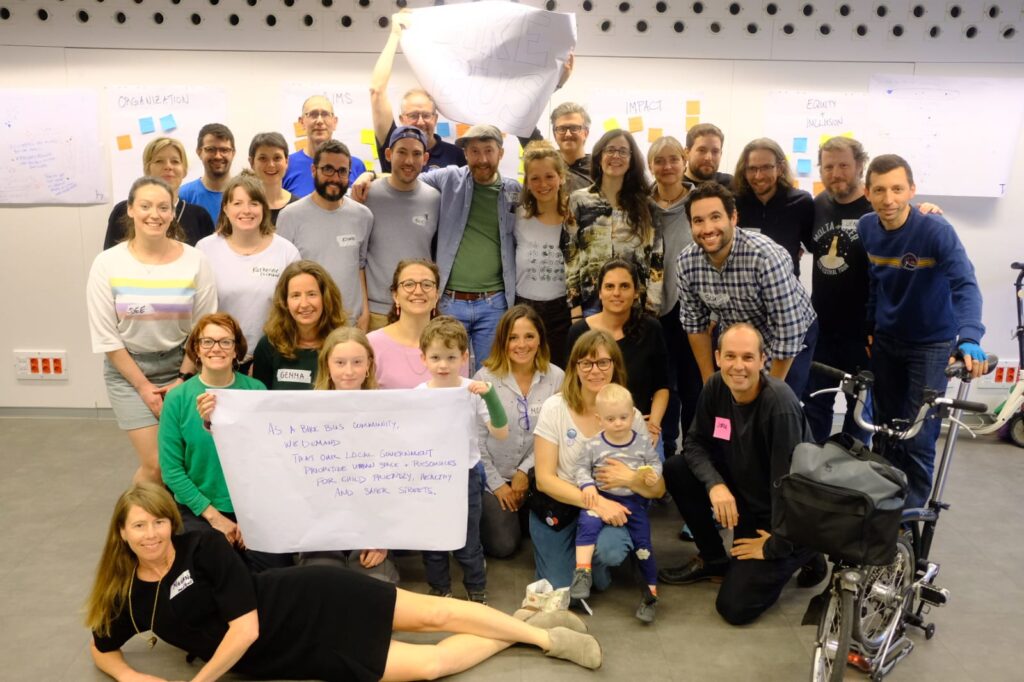Citizen participation and co-creation are essential to design a more sustainable school mobility.
Involving schoolchildren, families, educational centers and the public administration in the decision-making process guarantees that the solutions implemented are effective and meet the needs of all the actors involved.
Below are four key steps in a process of citizen participation and co-creation, accompanied by an expert in participation and processes:
- Identification of needs and priorities: At this stage, consultations and surveys are carried out to gather information on the needs and priorities of the different actors involved in school mobility. This information is crucial to ensure that the proposed solutions are appropriate and relevant to the community.
- Co-creation workshop: A co-creation workshop is organized in which schoolchildren, families, educational center staff and representatives of the public administration work together to generate ideas and proposals to improve school mobility. The person who is an expert in participation and processes facilitates the dynamics of the workshop and ensures that all voices are heard and taken into account.
- Analysis and selection of proposals: Once the proposals have been generated, a joint analysis is carried out to assess their feasibility and potential impact on school mobility. The expert in participation and processes guides this analysis, helping the participants to select the most promising and appropriate proposals for the community.
- Implementation and monitoring: With the selected proposals, an action plan is drawn up for their implementation. The public administration, together with the educational center and the families, is responsible for carrying out the proposed actions. The Engagement and Process Expert monitors progress and provides support during implementation, ensuring that solutions meet identified needs and that adjustments are made if necessary.
Involving all stakeholders in a process of citizen participation and co-creation is essential to ensure that school mobility solutions are sustainable and effective.
By working together, schoolchildren, families, educational centers and the public administration can achieve a significant change in the way in which children travel to and from school, promoting a more sustainable, safe and healthy mobility for all.




